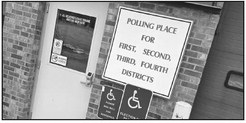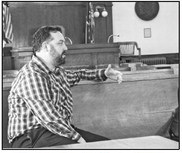Common sense needed in absentee ballot ruling
Taking out the household mail could become voter fraud under a bizarre judicial interpretation that Wisconsin Supreme Court has allowed to stand.
As part of an ongoing effort to undermine public trust in the election system, a lawsuit was filed last year by two Waukesha County men against drop boxes and so-called vote harvesting. In January, Waukesha County Circuit Judge Michael Bohren ruled “an elector must personally mail or deliver his or her own absentee ballot,” except in limited circumstances.
While an appeals court and the state Supreme Court blocked Bohren’s order for the spring primary. Justices allowed it to go into effect for the April 5 spring general election.
The lawsuit was aimed to stop voter drop boxes, which were used with the blessing of the bipartisan Wisconsin Election Commission in many areas of the state in recent elections. The drop boxes allow people to quickly and easily drop off their signed and sealed absentee ballots to avoid long lines and congestion on election day. At the height of concerns over the COVID-19 pandemic, the efforts were a prudent and common-sense approach to allowing people and poll workers to minimize potential exposure.
Of particular issue, the circuit court judge ruling seeks to prevent so-called vote harvesting, by requiring people to personally drop off or mail their own absentee ballots rather than allowing anyone else to do it for them.
This is a move that sounds good, if you are in an ivory tower disconnected world of judicial activism. In the real world, this ruling turns spouses into scofflaws and vilifies being neighborly and helping a shut-in or invalid acquaintance run errands.
As written, the judge’s inane ruling would invalidate any ballot that the voter did not physically place in the mail themselves. This is problematic on many levels.
In most households, bills, letters and other items to be mailed are put in a pile and an individual in that household either drops them by the Post Office while running errands or puts them out for collection. It is absurd to suggest that each member of a household must make their own trip to the mailbox.
The absurdity of the ruling grows when taking into account that “putting something in the mail” may often involve a piece of mail passing through multiple people’s hands before it ends up in the custody of the U.S. Postal Service. For example, it is common for business owners to include their personal mail in the pile of items that gets taken to the post office by a staff member.
On many college campuses, letters and items deposited in mail slots in the dorms are collected and brought to a central point where the postal service truck picks them up. A similar process is used in many senior residential facilities and corporate office settings where items are brought by others to a collection point before handed off to the postal service. The judge’s ruling would appear to invalidate any ballots mailed this way effectively disenfranchising, students, business owners, those with physical disabilities and senior citizens.
The state Supreme Court is expected to make their final ruling on the case sometime this summer. Hopefully, the justices will insert some common sense into interpreting the law and stop the crusade to disenfranchise voters.




